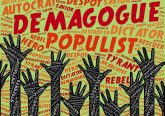The Anglo-Saxon understanding of ‘liberalism’ can be contrasted with the continental European understanding of the term, especially the French one. The liberal tradition in the United Kingdom or the United States refers to ‘social-liberalism’. In France, liberalism is often associated with the Anglo-Saxon conception of ‘economic-liberalism’ involving deregulation and a free market economy, which are, to an extent, alien to French views of the state and the economy. But liberalism is more than free market capitalism; it also relates to the role of the state. Historically, not only does France seek to remain an exception, but its liberalism directly refers to those it seeks not to emulate – its Atlanticist counter-parts. If France owns a tradition of being socially liberal – and hails its leading role as the country of the 1789 Revolution and the Declaration on Human Rights – the workings of the state and its policies are not liberal.
The remedy to some of the country’s woes, however, is most likely to be a good dose of Atlanticist liberalism. France’s revolutionary tradition would at first seem to offer ripe soil for liberal-minded thinkers to stand up to a system perceived as falling short of the Universal Rights and values enshrined in the Declaration of Human Rights. But the revolutionary past, which many in France are still attached to, does not seem to ever transpire into liberalising the state – even in May 1968. If May 1968 called for more social progress, it was predominantly a rejection of the Gaullist tradition and an outcry for social liberalism rather than a demand for state reform. If liberalism is widely accepted as a societal aspiration in the Anglo-Saxon world, liberalism has mostly been a topic of debate amongst intellectuals in France. The radical branch of French intellectual thought, as found in Sartre’s reactionary verve, suggests that there could be a form of liberal-thinking built on top of the revolutionary tradition and its refusal to conform with orders prompted by the central authority of the state. But it has not led the way to a more liberal system – if anything it argued in favour of more state intrusion when it stood in favour of Marxism and communism. Therefore, there has never been, in France, a tradition of intellectuals arguing for less ‘dirigisme’ from the state. Philosophers discuss many issues from national identity to wars in foreign countries but do not question the role of the state in France. The nature of the state is still tainted by thick Jacobin legacy.
Looking back at the accession of a socialist to the French presidency in 1981, many critics feared the influence of communists in government and Mitterrand’s ‘changer la vie’ resonated (for liberals) more like a drift towards totalitarian regimes such as Soviet Russia, China or Cuba than towards a liberalising agenda.1 This concern hinges upon the fact that the French Communist Party was still affiliated with its Soviet counterpart. Intellectuals on the left even sided with intellectuals on the right to raise concerns over the role of Leninist and Marxist ideals in government. Thus, although the election of François Mitterrand was welcomed by the intellectual left, it did not lead to its reconciliation with politicians and the state.2 In practice, intellectuals never found much in common with the policies implemented by the socialist government and by the time Mitterrand’s economic policy U-turn occurred in 1983, the cleavage became ever so apparent and intellectuals resumed to disapproval. After communism and after Mitterrand’s economic reversal, claims against dangers on the radical left dissipated. For one, the socialist dream in France proved still-born or at least failed to meet expectations.3 Perhaps the French overly relied on the state to guide them, as opposed to ‘freedom thinkers’ – the absent intellectuals. Hence, the French conception of liberalism seems to have some bearing on social liberty but not outright self-empowerment and a capacity for governmental change.4 If the people will not argue for change, only the political power can; but politicians want to keep power inside the state.
The strongest break away in that direction was made by Nicolas Sarkozy. He genuinely sought to impress a new rhythm to his country. He sought to give France the means to adapt to a changing world; he thought that the right way to do so was to reform the tax system – to alleviate the burdens on small and medium enterprises as well as on capital – as well as to make the labour market more flexible, reform universities, adapt pensions to life expectancy, invest in nations abroad to curb the influx of immigrants, curb the spiralling cost of healthcare, devolve some authority to the European Union and to introduce a golden rule of mandatory balanced budgets. This was a liberal agenda which bears resemblance to Valéry Giscard d’Estaing’s back in 1974. It envisioned more opportunities in the private sector for workers and developed the power of supra-national institutions. Yet, Sarkozy’s agenda has been caricatured as drifting into a ‘police state’ with control over media, crack-downs on immigrants and measures in favour of the wealthy. In fact, Sarkozy’s defeat is reminiscent of Giscard d’Estaing too. Although they appealed to a large share of the vote with a liberal and reformist programme, once introduced, the French reneged on what they had seen as positive ex ante. What this shows is the absence of a forward-looking spirit in France – the idea that the system can remain as it is, that the French will carry on with their ‘acquis’ that already look outdated.
It seems the French administration (public spending as percentage of GDP is one of the highest in the world) braces the country. The state remains powerful and conservative amid decentralisation. France may certainly be socially liberal, but it is not politically and institutionally an open system infused with a degree of liberalism. On a side note, the country’s refusal to look back on its past and to reconcile with its role in some of the murky waters of the 20th century is evocative. Whilst France has been adamant about its ‘devoir de mémoire’ regarding the Holocaust, seldom is reference to other events such as the Algerian war, colonialism or the Vichy regime even made. The refusal to acknowledge its past or the appetite for reform from the various levers of power is not reassuring. One of the symbols of the omnipresence of the state is the recurring invocation of ‘the Republic’ in politics and public life. Although this concept has a historical meaning, it is also a scapegoat and a fit-all term. Republicanism has been coined “the least precise and the most invoked concept in the French political lexicon.”5
France bears no liberal tradition. Its liberal elements, when present, have failed to attract much interest or traction. Instead, liberalism has traditionally been seen as the appanage of Anglo-Saxon society and the country remains more attached to a Bonapartist conception of the state.6 The share of individual opportunity and self-reliance that is embedded in the Anglo-Saxon liberal tradition empowers the individual; it allows one to rely on the system to take initiative and move forward. In France, the inverse process precipitates people to rely on the state to avoid moving forward – to avoid change. But in the current climate adaptation is key, and politicians have yet to acknowledge the need to reform and/or to accept being overtaken by other socio-economic models more in tune with reality. In recent months only François Fillon has used rhetoric suggesting the failure of the French model. This is not anti-patriotic; quite the opposite. Those who share the responsibility of the growing burden are those who fail to draw the evident conclusions – they are letting the French nation down. I have not heard much from the current government on the necessity to reform the role of the state. In fact, the incident with Peugeot-Citroen, in which the government told a private firm it would not allow it to manage itself as it saw fit, suggested quite the opposite: that the problem is not to be found in the workings of the French state or its economic structure. Reform, it seems, may not come from the people nor from the government. Perhaps ‘Etat’ could replace ‘Liberté’ as one of three ideals enshrined in the French motto. Perhaps the next government will have the stomach to put the nation back on track, but that remains wishful-thinking.
Maximilien Berg is an MPhil student at Oxford University.
2 Jeremy Ahearne, Intellectuals, culture and public policy in France: approaches from the Left, p. 20








No Comment